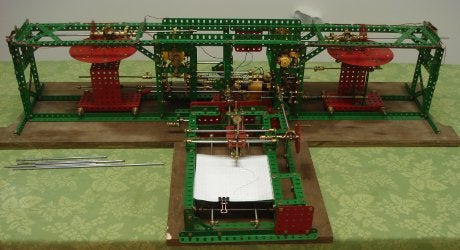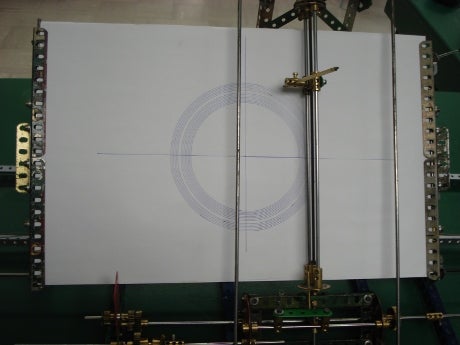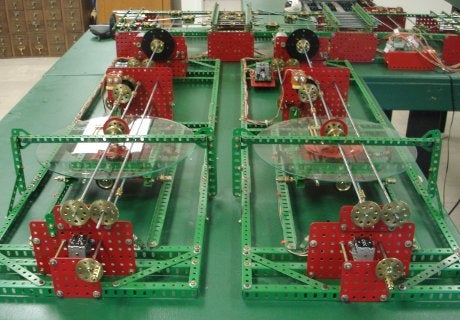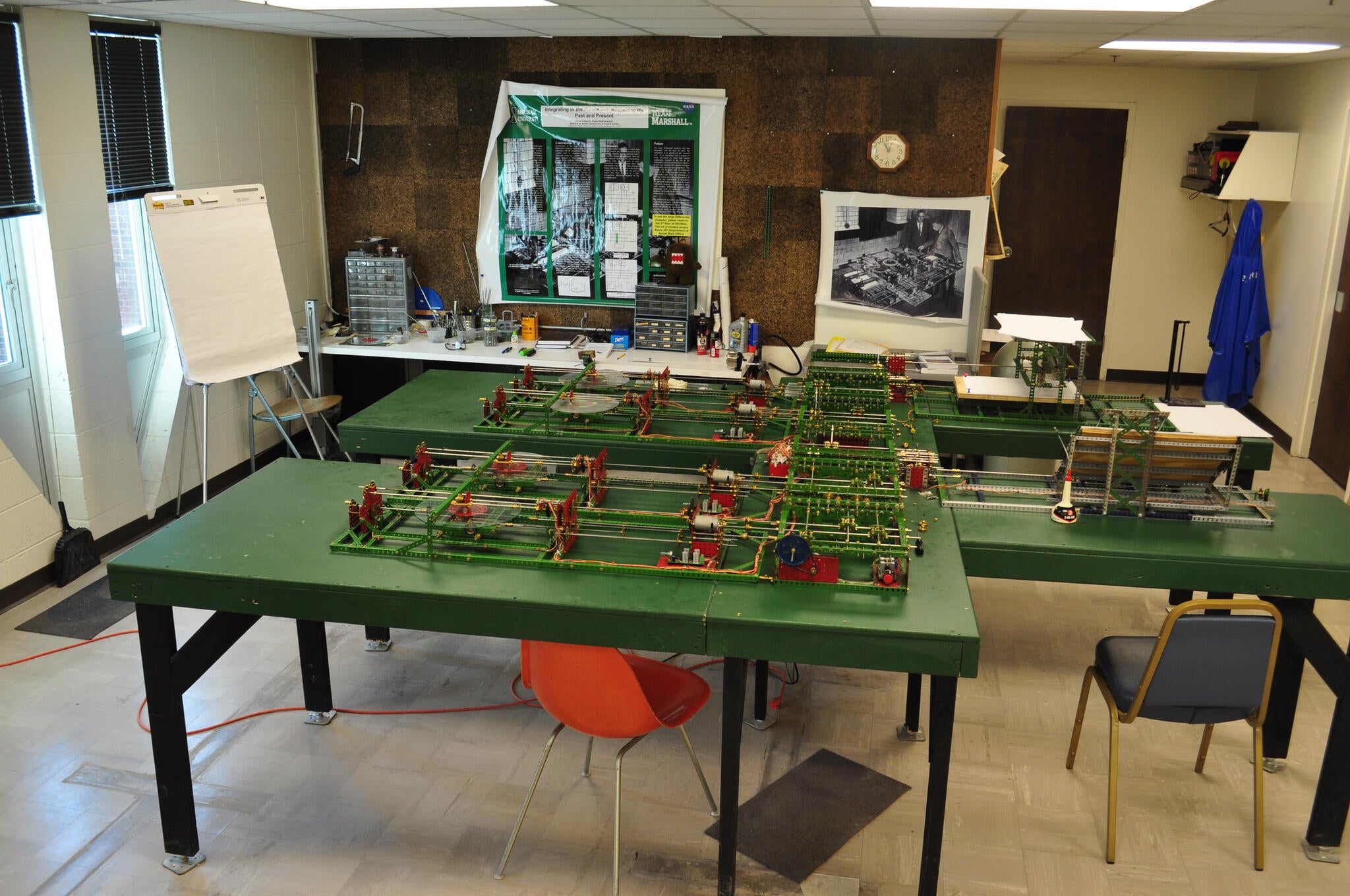A Differential Analyzer (DA) is a mechanical device which solves differential equations by simulating them on physical components. DAs were used extensively in the first half of the 20th century, before digital computers were able to solve differential equations. Today, DAs are still useful for letting us “see” the way that a solution to a differential equation develops over time. The abstract changes in mathematical quantities can be visualized in physical movements and rotations within the DA.
The key component of a DA is the integrator, a mechanical device that takes a mechanical representation of a derivative as input and returns a mechanical representation of the net change as output. The number of integrators in a DA tells what kind of differential equations it can solve. A DA with two integrators can solve a single second-order ODE, or a system of two first-order ODEs. A DA with four integrators can solve a system of two second-order ODEs, or a single second-order ODE with a forcing term that itself is the solution of a second-order ODE.
Learn more about Differential Analyzers on Wikipedia.
Images of the Differential Analyzer Laboratory





Dr. Bonita Lawrence
Office: Smith Hall 614
Differential Analyzer Laboratory
Location: Smith Hall 614
Phone: 304-696-3854